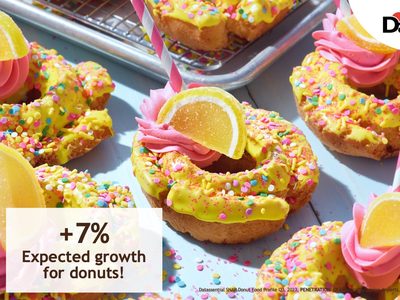Denver is known for its gorgeous mountainous backdrop and its thriving art and food scenes. However, if you were to ask many people across the country what they believe separates Colorado’s state capital from everything else, it would be the weed.
Colorado, along with Washington, was the first state to legalize recreational use of cannabis in 2014. Since, bakeries and dispensaries have popped up everywhere throughout Denver and the rest of the state. There have been many stalwarts that preceded the recreational boom, first going into business to serve those seeking medicinal products.
These producers were leaders in the cannabis-infused edibles movement, which has spread to other states as it has been legalized in those places. That is what brings me to the city of Denver. I wanted to learn more about the cannabis scene, the impact on baking, and what goes into making these edibles, as well as to break down the common misconceptions about cannabis.
My curiosity was stoked by a report that was released in December 2018. The National Restaurant Association’s 2019 culinary forecast surveyed 650 professional chefs on the top food and beverage trends. Over three-fourths of these chefs considered cannabis and CBD-infused food and beverages to be the top culinary trends for this year.
Cannabis products, in particular, are on the minds of consumers, businesses, and governments throughout the United States, and thus makes them a vital topic to shed more light on.
Sweet Grass is Greener on the Other Side
My first stop in Denver takes me to a rather unassuming building in a rather unassuming area of town. The building’s facade would suggest that a carpet manufacturer or auto glass repair business took up its space, not one of the top edibles companies in the state. Inside is a much different story, full of offices, kitchen space, a grow room, and so much more.
It is here that I meet the employees of Sweet Grass Kitchen. The small-batch bakery was on the forefront of the cannabis-infused edibles movement in Colorado. Since 2009, its kitchen has served Colorado’s top dispensaries with flavorful, fresh cannabutter and distillate confections.
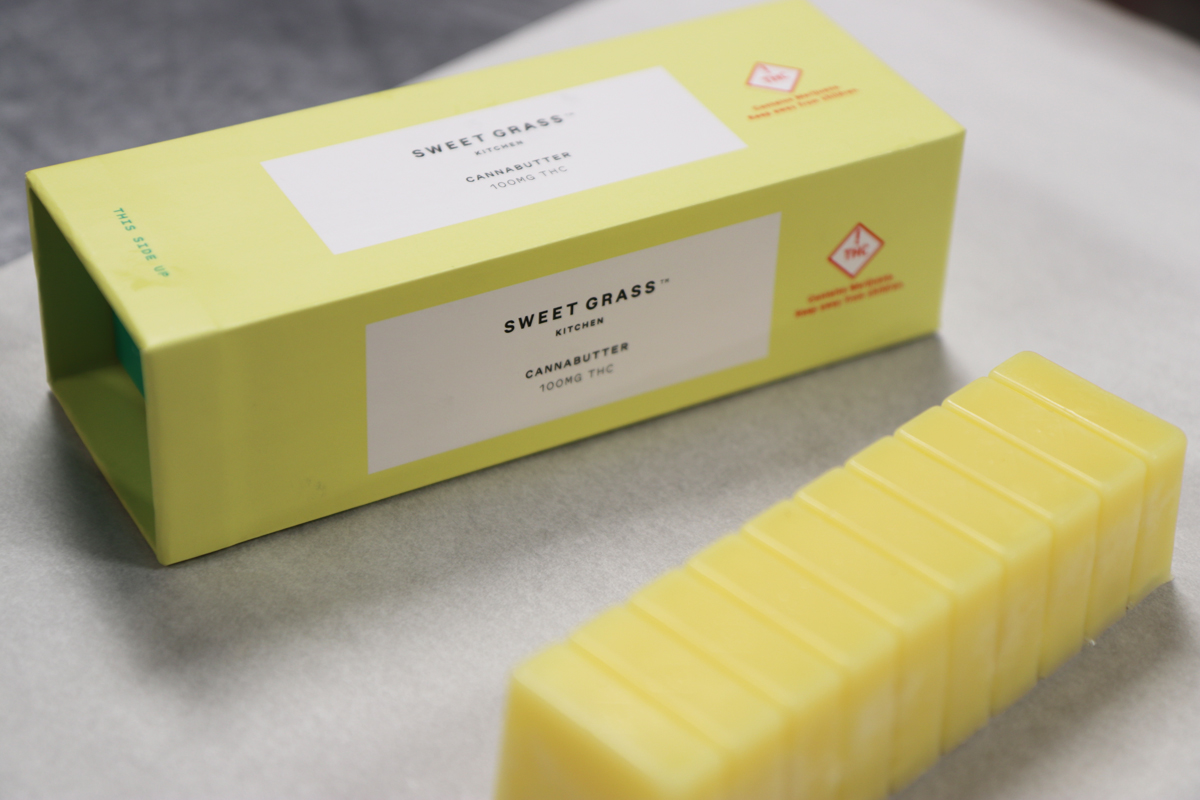
The bakery’s cannabutter is its pride and joy. Sweet Grass Kitchen has perfected its formula for recreational baked products using this in-house ingredient, adding something special to cookies, brownies, and pies. “Our bestseller is still our original chocolate chip cookie, but the pot brownie is the staple. Having really good infusions means you can put it into anything,” says Sweet Grass Kitchen CEO and founder Julie Berliner.
These products are served to nearly 500 dispensaries throughout the state, and continue to grow in popularity thanks to the cannabutter effect.
By baking its products with a butter infusion, Sweet Grass is able to ensure that the THC is spread throughout the entire product, that the cannabis is a natural part of each recipe, and that the strong herby flavor is masked.
There are other methods of infusing THC into baked goods (such as distillates or oils), but Sweet Grass believes this method is ideal for quality and safety.
It all starts with the in-house cultivation. Sweet Grass uses the entire flower in its cannabutter, as opposed to only using the “trim.” Therefore, the bakery needs to ensure that it is using the best plant possible. A grow room in the heart of the facility produces 20 million milligrams of THC per year, always focusing on a sativa-dominant hybrid grown in a soil medium.
From there, the THC is extracted and then prepared at the company’s fully functional kitchen. The kitchen was, in part, designed by Didier Rosada, a Master Baker and vice president of operations at Uptown Bakers and a leading educator for the baking industry. Each space was designed to maximize efficiency, with a small number of kitchen staff producing the company’s massive output.
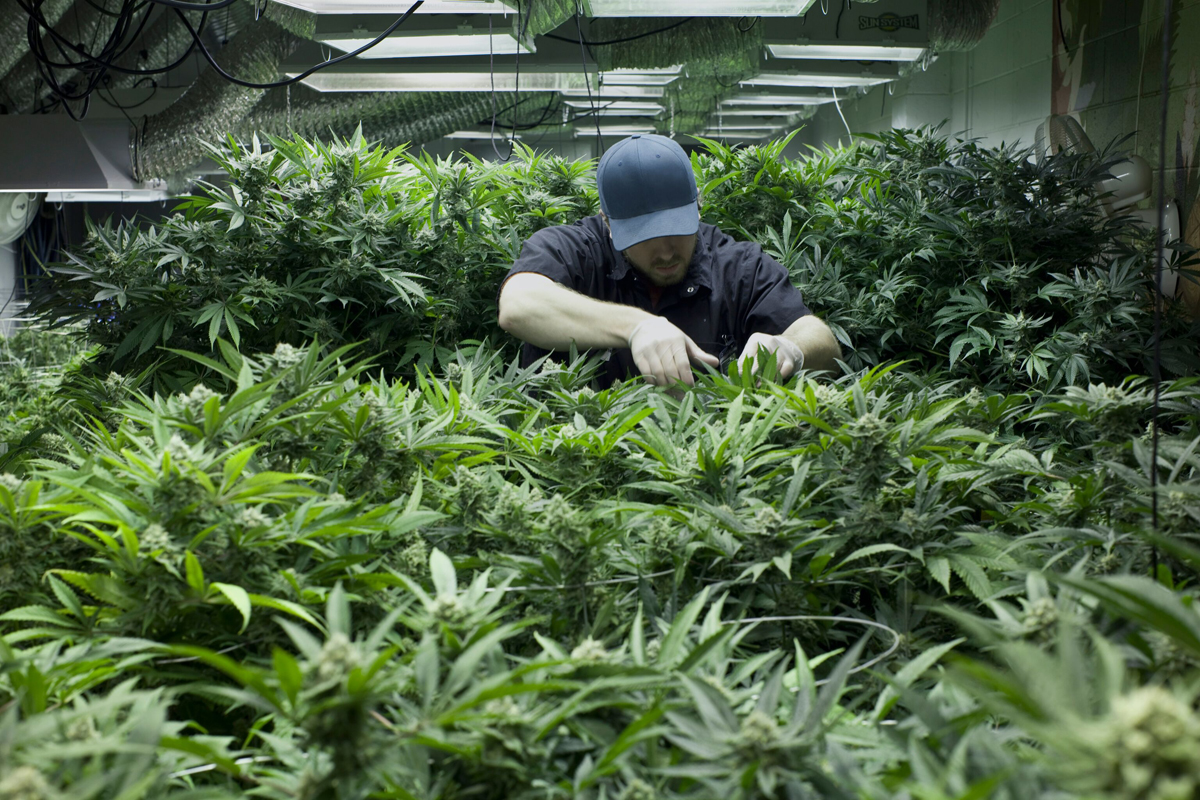
After being cultivated and extracted, the THC is mixed into the cannabutter, which is then baked into the company’s cookies, brownies, and pies using a Revent Rack Oven 700 series. Each serving of these recreational products contains 10 milligrams, which is more than enough for the average person to experience psychoactive effects. The company also produces microdose treats which feature 2.5-5 milligrams. These come in mojito mint buttermelts and fruit gummies. These products are not made with cannabutter, instead infused with a fully-activated THC distillate.
Sweet Grass then packages the products and ships them itself to licensed care centers throughout the state. It’s an incredible process from start to finish, and in 2018 the company provided over 2 million servings of cannabis edibles.
Love for the Business
From there I head to my second destination of the day and a company that is a friendly competitor of Sweet Grass Kitchen, Love’s Oven. Also starting in 2009, Love’s Oven is seen as a veteran of the Colorado edibles industry.
I’m greeted by Peggy Moore, CEO of Love’s Oven. Moore has turned this cannabis bakery into a family business, with her two oldest sons and youngest sister coming aboard as her business partners. Aside from this family “recipe,” Love’s Oven represents its name well by treating cannabis with love. The company is committed to creating the best infused products through all-natural ingredients that are sourced locally and organically.
“We do everything we can to utilize locally sourced products. We’re a scratch bakery and we’re in Colorado, so we have access to many great homegrown products. We want to stay true to our roots, and we want to give back to the community in multiple ways,” she says.
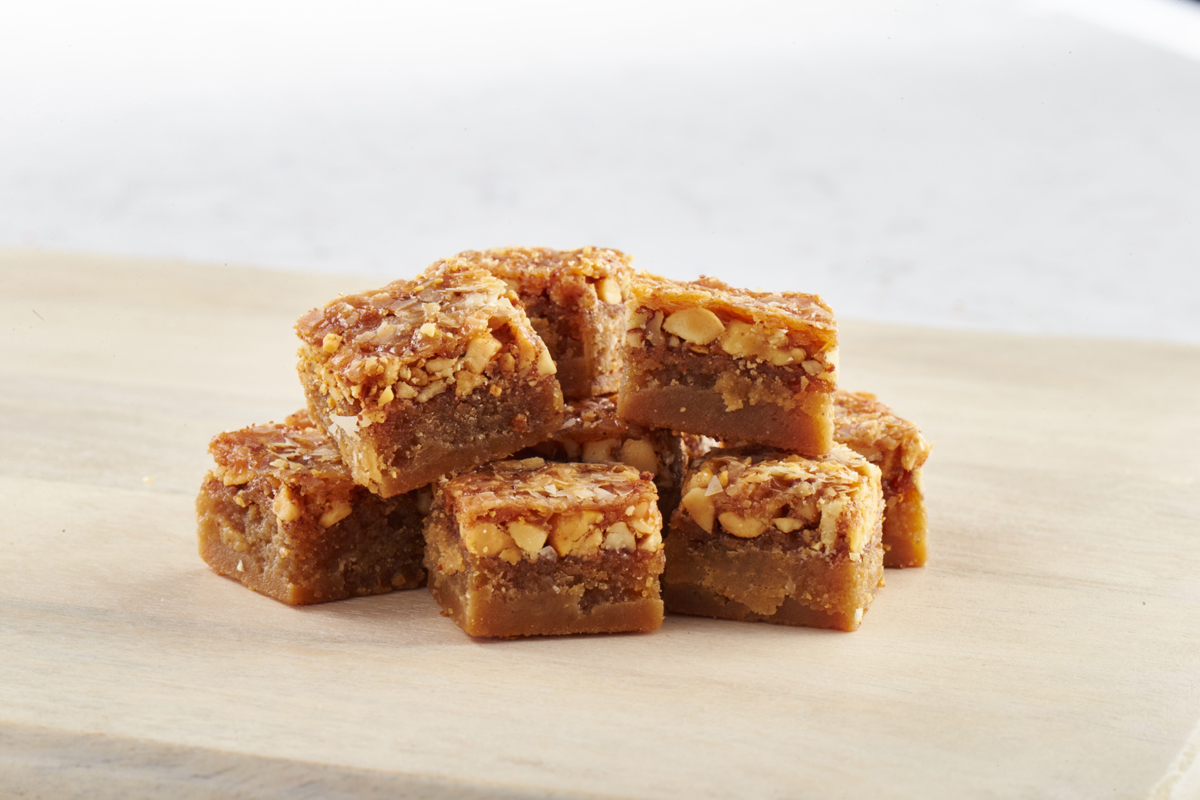
Moore introduces me to corporate executive chef Hope Frahm, a talented individual who creates all of Love’s Oven’s recipes. Frahm came to Love’s Oven with an impressive resume, having worked under Wolfgang Puck and Thomas Keller, two of the biggest names in the food industry. Love’s Oven knew that it needed a world class chef to produce a top-level product, and they believe they have achieved that.
The bakery’s THC extraction method ensures that customers receive a consistent and effective dose of cannabutter in every bite of its gourmet baked goods, which include cookies, brownies, baklava, and cheddar crackers for a more savory flavor. In 2016, Love’s Oven opened its incredible extraction lab, which allows the company to create high-level concentrates. The lab is a true sight to behold, especially for somebody unfamiliar with its capabilities.
Having been around for a decade, Love’s Oven is seen not only as top edible producer, but also as a leader in innovation. The company produces a beverage called Legal, which comes in four flavors and is an all-natural, fruit-based beverage. It was created by a company out of Washington state, but Love’s Oven is the Colorado manufacturer of this beverage that is unique to the cannabis market.
While chocolate and peanut butter make ideal flavors pairings with cannabis, Love’s Oven is always testing baked goods with different flavors such as red velvet.
“One of the great things about this industry is that the sky’s the limit, because it hadn’t existed before. Almost every mainstream consumable product, you can do it with cannabis. And you can make a product that can help people,” Moore says.
“We’re a group of thinkers. While we focus on managing the business, we focus just as much time on thinking and innovating. Just like any business, you probably discard 95% of that and then focus on the other 5%.”
Marijuana Misconceptions
Cannabis faces a tough uphill battle in consumer acceptance. A January consumer study from Culinary Visions identified trust and traceability as the primary concerns that consumers have when it comes to foods and beverages containing cannabis ingredients.
These are just two of the many issues that cannabis bakeries have had to deal with throughout their history. Both Sweet Grass Kitchen and Love’s Oven face those challenges head on.
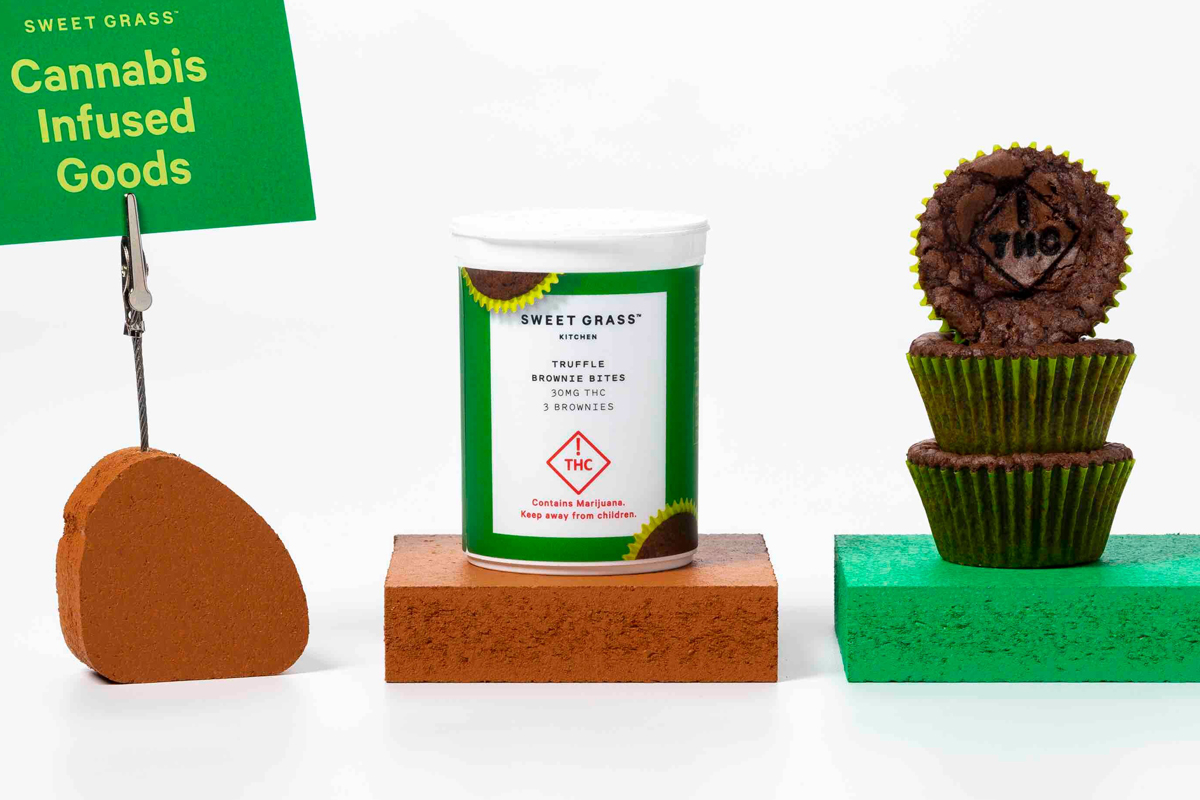
“The biggest misconception is that people are still making these products in their garages, basements, or home kitchens, which is not the case and hasn’t been the case in Colorado since 2010. We take all aspects of our business very seriously, but food safety is the most important aspect to us. We would never want someone to become ill from one of our products or have a bad experience,” says Peggy Moore.
Because it was a pioneer in the industry, Love’s Oven looks to share its knowledge and best practices with others in the cannabis industry, as well as keep the public informed about what goes on in the bakery. Moore keeps an open-door policy for all to learn more about her business and the industry.
Likewise, Sweet Grass Kitchen believes accessibility is vital to breaking down the barriers between the public and cannabis bakeries. The company provides consulting services for other bakeries so that they can create better products for consumers.
The Sweet Grass Kitchen team travels across the country to share their knowledge through panels and educational sessions. At the International Baking Industry Exposition (IBIE) in September, Sweet Grass’ executive chef Lauren Finesilver and sales and marketing director Jesse Burns will discuss the technical aspects of working with cannabis as an ingredient in baked goods during their “Flower to Flour and Pound to Lb – Baking and Infusing Cannabis into Food” education session. In another session titled “Regulation as a Force for Innovation – Packaging and Marketing Cannabis Food Products,” Burns and Sweet Grass CEO Julie Berliner will cover the dos and don’ts of cannabis food packaging in Colorado.
“In going to a conference like IBIE and representing our industry in a way that defies the stereotypes, that’s important,” Berliner says.
Working against decades of widespread propaganda against cannabis, the industry looks to gain the trust and acceptance of society. Part of that means being open and cooperative with the government. Sweet Grass is transparent with its business, opening its doors to Colorado’s Marijuana Enforcement Division and other state agencies.
“As much collaboration with the people who put these rules in place, the better,” Berliner says.
“Lab testing is also important. We have to do third-party testing, and we have to test everything we make until we hit a certain point of process validation. So, having transparency with them, inviting them to see your shop, and having a positive working relationship is super important,” adds executive chef Lauren Finesilver.
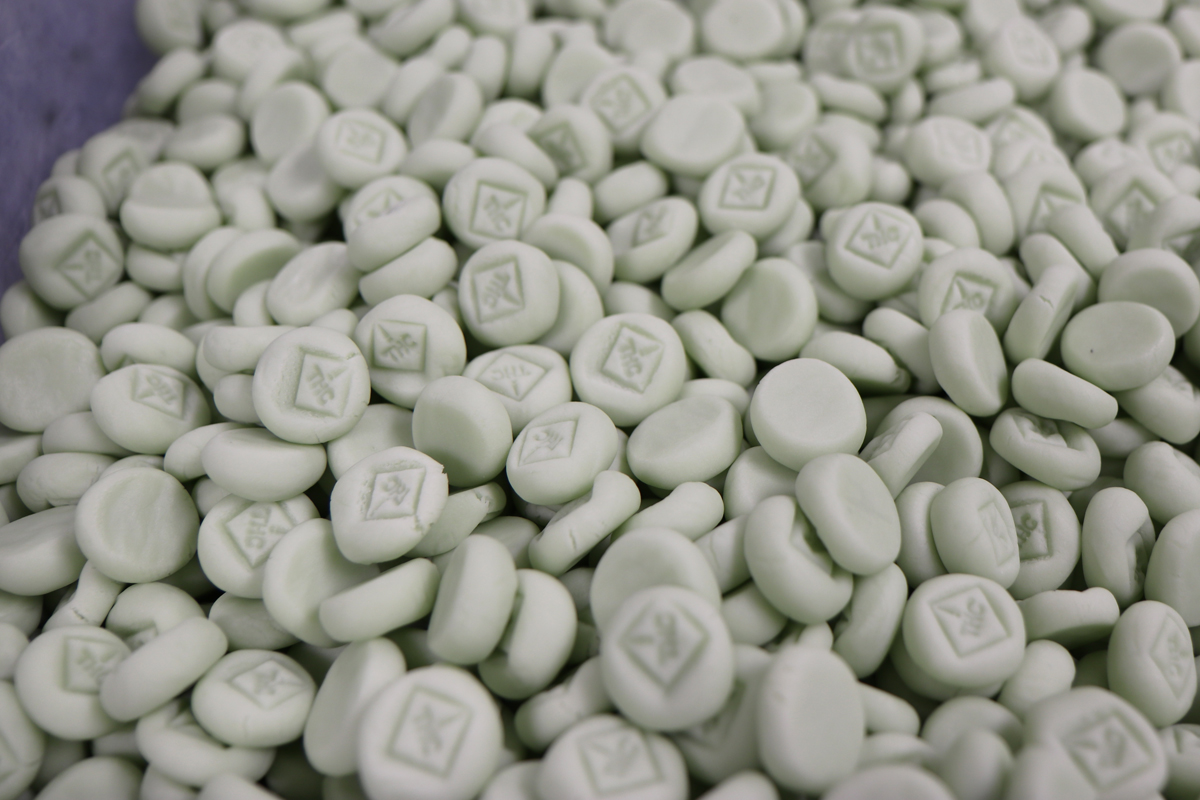
Another common misconception is that only young people are enjoying these products. While the market tends to skew towards the 25-40 age range, products are developed that appeal to people of all legal ages.
“We design products that reach outside of that (age range). Seniors is one of the fastest-growing segments. That’s why we created (buttermelts) old-fashioned dinner mints. They’re low-dose products that are meant to be familiar to a senior market,” says marketing director Jesse Burns.
Much like with alcohol, cannabis bakeries want to prevent kids and unwilling individuals from consuming its products. To that end, companies like Love’s Oven and Sweet Grass Kitchen create packaging that is child-proof, opaque, and clearly marked with THC warnings.
Aside from the safety and accessibility, they also tout the boost cannabis gives to the Colorado economy. Jobs are created, ancillary businesses are supported, and tax revenue is generated, all through this trending ingredient.
The ultimate goal for many in the industry is to normalize something that has been normal to them for years.
“It’s really interesting to see when that click happens, that social intuition starts to set in. That’s what we’re all working towards in the end. We’re just normalizing and making this thing that’s had a profound impact on all of our lives accessible to more people,” says Burns.





